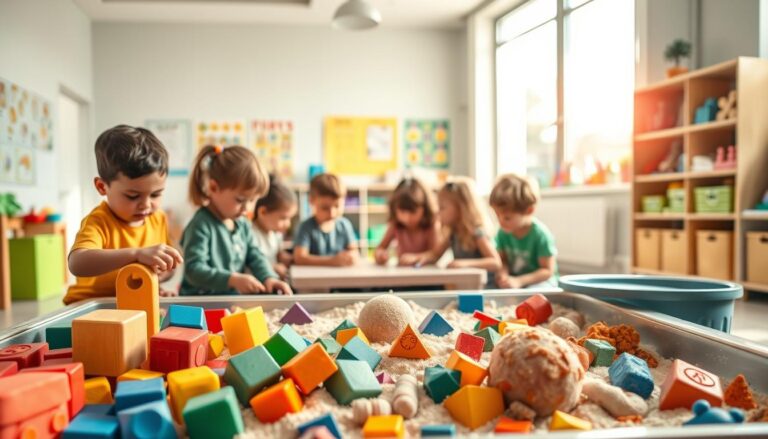Raising children in today’s fast-paced, tech-driven world comes with unique challenges. Parents are navigating a landscape where traditional values meet advanced tools like smartwatches, such as the Cosmo JrTrack 4. Balancing these elements is key to fostering well-rounded development.
According to a 2021 NIMHANS survey, 60% of parents noticed behavioral changes in their kids during pandemic isolation. This highlights the need for strategies that address emotional intelligence and cultural awareness. UNICEF data supports this, emphasizing the importance of these skills in a globally connected world.
Harvard and NCERT research shows that academic success is closely tied to emotional and social skills. This article will explore actionable strategies to help parents prepare their children for life in 2025. From tech integration to emotional growth, these tips aim to make parenting more effective and fulfilling.
Key Takeaways
- Tech tools like smartwatches can enhance parenting strategies.
- Behavioral changes in children require attention and care.
- Emotional intelligence is crucial for a child’s development.
- Cultural awareness helps kids thrive in a connected world.
- Academic success is linked to social and emotional skills.
Introduction to Modern Parenting for Preschoolers
Families today face unique hurdles while nurturing their young ones. Societal shifts demand updated approaches to raising children. From cyberbullying concerns to fostering emotional growth, parents are redefining their roles in this fast-paced world.
According to a 2022 IAMAI report, 70% of Indian parents worry about cyberbullying. This highlights the need for strategies that protect children while encouraging their independence. Involvement from parents can make a significant difference. A 2021 study by the Indian Psychiatry Society found that kids with engaged parents experienced a 40% reduction in anxiety.
“Balance is key…forcing food creates long-term issues.”
This reflects the importance of flexibility in daily routines. A Career360 study also revealed that 65% of Indian career choices are influenced byparents, emphasizing their role in shaping futures.
Azim Premji University’s research highlights the importance of social skills in raising global citizens. Teaching cultural awareness and empathy prepares kids for a connected world. Tools like the Cosmo JrTrack 4’s family-safe network can also support parenting efforts by ensuring safety and connectivity.
As families navigate these challenges, integrating technology and fostering emotional intelligence will be key. The next sections will explore actionable strategies to help parents thrive in this evolving landscape.
Understanding Modern Parenting Styles
The way families approach child-rearing has evolved significantly in recent years. Different parenting styles have emerged, each with its own set of rules and expectations. Understanding these approaches can help parents make informed decisions about raising their kids.

Authoritative vs. Permissive Parenting
Two common parenting styles are authoritative and permissive. Authoritative parents set clear boundaries but explain the reasoning behind them. This approach fosters trust and understanding. On the other hand, permissive parents often avoid strict rules, which can lead to challenges in discipline.
As Alice, a child psychologist, notes,
“Negotiating meals or bedtime can create long-term issues if kids don’t learn boundaries.”
This highlights the risks of overly lenient approaches.
The Rise of New Age Parenting
New Age Parenting focuses on emotional intelligence and adapting to technology. This style encourages parents to teach empathy and self-awareness while integrating tech tools like smartwatches. According to UNICEF, nurturing early environments can improve cognitive skills by 40%.
Harvard research also shows that involved parents contribute to 30% higher academic success. Similarly, NCERT data reveals that kids with engaged parents score 15-20% higher on tests. These findings underscore the importance of active participation in a child’s development.
Embracing Technology in Modern Parenting
Technology is reshaping how families connect and grow in today’s world. From smartwatches to educational apps, tech tools are becoming essential in nurturing young minds. However, finding the right balance is crucial to ensure these tools benefit kids without overwhelming them.
Smart Use of Tech Tools
One effective way to introduce technology is through phased integration. For example, the Cosmo JrTrack 4 smartwatch allows kids to stay connected with call and text features while avoiding distractions like games or social media. This approach helps children learn responsible tech use early on.
As one parent shared,
“I initially wanted a ‘NO TECH’ approach, but the reality is that digital citizenship is a skill kids need to learn.”
Structured activities, like those recommended by NIMHANS in 2021, can also reduce the psychological impacts of excessive screen time.
Balancing Screen Time
Managing screen time is a common concern for parents. According to APA research, setting clear thresholds can improve health and social skills. For instance, limiting recreational screen use to 1-2 hours a day ensures kids have time for other activities.
Parental control tools, like app-based monitors for YouTube or tablets, can help enforce these limits. These tools allow parents to filter content and track usage, creating a safer digital environment for their child.
By embracing technology thoughtfully, parents can prepare their children for a connected world while fostering healthy habits.
Fostering Emotional Intelligence in Preschoolers
Helping young kids understand their emotions is a vital part of their growth. Emotional intelligence lays the foundation for healthy relationships and lifelong happiness. By teaching self-awareness and empathy, parents can equip their child with essential skills for navigating life’s challenges.

Teaching Self-Awareness
Self-awareness is the ability to recognize and understand one’s emotions. One effective way to teach this is through tools like “feeling wheels.” These visual aids help kids identify and express their feelings. As Nikhil Rai suggests, using emotional dialogue strategies can make this process engaging and relatable.
Sharing personal childhood stories can also help. According to the Journal of Child Psychology, parents who model emotional regulation provide a strong foundation for their child. This approach fosters a sense of security and understanding.
Encouraging Empathy
Empathy is the ability to understand and share the feelings of others. Role-playing scenarios, like sharing toys, can teach kids how to resolve conflicts peacefully. Azim Premji University highlights that parent-modeled behavior significantly improves communication and empathy.
Introducing multicultural storybooks is another great way to encourage global empathy. UNICEF’s research shows that early intervention can boost cognitive skills by 40%. These activities not only teach values but also prepare kids to thrive in a diverse world.
“Empathy is the bridge that connects us to others, fostering love and understanding.”
By focusing on emotional intelligence, parents can help their kids develop strong social skills and a deeper connection to the world around them.
Encouraging Independence from a Young Age
Building independence in kids from a young age sets the stage for lifelong confidence and resilience. By giving them opportunities to make choices and learn from their mistakes, parents can help their child grow into a capable and self-assured individual.
Creating Opportunities for Choice
One effective way to foster independence is by offering choices. For example, let your child decide whether to do homework right after school or after dinner. This small decision empowers them and teaches responsibility.
Mealtime is another great opportunity. As Em wisely puts it,
“Letting kids choose between pasta or goldfish teaches them autonomy without compromising nutrition.”
Structured activities, like pretend supermarket games, can also teach money basics and decision-making. According to the 2021 Indian Psychiatry Society, such activities reduce anxiety and build confidence.
Learning from Mistakes
Mistakes are a natural part of growth. Creating “low-stakes failure” scenarios, like mismatched outfits, allows kids to learn without fear of serious consequences. This approach helps them develop problem-solving skills and resilience.
Regular parent-child talks, as highlighted by the APA, build social skills and emotional strength. Guided independence, supported by Career360’s career choice stats, ensures kids feel empowered while staying on the right path.
By encouraging independence in small, meaningful ways, parents can prepare their child to navigate life’s challenges with confidence and grace.
Building Social Skills in a Digital World
In a world increasingly dominated by screens, helping kids develop strong social skills is more important than ever. While technology offers many benefits, it can also limit face-to-face interactions that are crucial for communication development. According to the APA, offline interactions play a key role in building empathy and teamwork.
Encouraging Face-to-Face Interaction
One effective way to foster social skills is by organizing “tech-free playdates.” These gatherings allow kids to engage in unstructured play, which Azim Premji University found enhances teamwork and problem-solving. Another idea is to train kids on video call etiquette, such as during grandparent Zoom sessions. This teaches them how to communicate respectfully in both digital and real-world settings.
Navigating Social Media
For younger kids, tools like the Cosmo smartwatch can serve as a safe alternative to social media. It allows them to stay connected without the risks of online platforms. Role-playing cyberbullying responses, based on IAMAI statistics, can also prepare them to handle difficult situations. Introducing “kindness challenges” encourages positive interactions, both online and offline.
| Activity | Benefits |
|---|---|
| Tech-Free Playdates | Enhances teamwork and problem-solving |
| Video Call Etiquette | Teaches respectful communication |
| Kindness Challenges | Promotes positive interactions |
By balancing digital and real-world interactions, parents can help their kids thrive in a connected yet socially rich world.
Raising Global Citizens
Preparing kids to thrive in a diverse world requires intentional efforts. By teaching cultural awareness and empathy, parents can help their children become compassionate and informed individuals. UNICEF’s 2019 report highlights that nurturing environments boost cognitive and emotional skills, making these lessons essential for early development.
Teaching Cultural Awareness
One way to teach cultural awareness is by cooking international dishes together. Discussing the origins of these meals helps kids appreciate different traditions. For example, making sushi can lead to a conversation about Japanese culture. This hands-on approach makes learning engaging and memorable.
Another idea is to celebrate UN World Days, such as Diversity Day or Earth Day. These events provide opportunities to discuss global issues in a child-friendly way. As one parent shared,
“Celebrating Earth Day with a recycling project taught my kids the importance of caring for the planet.”
Such activities instill values that last a lifetime.
Encouraging Global Empathy
Empathy is a cornerstone of global citizenship. Role-playing scenarios, like helping a friend in need, can teach kids to understand others’ feelings. Nikhil Rai’s poem, “We Are the World,” can also frame aspirations for global unity and compassion.
Implementing “virtual pen pals” through supervised apps is another effective strategy. Kids can connect with peers from different countries, learning about their lives and cultures. This fosters a sense of connection and mutual respect.
| Activity | Benefits |
|---|---|
| Cooking International Dishes | Teaches cultural appreciation |
| Celebrating UN World Days | Promotes global awareness |
| Virtual Pen Pals | Encourages cross-cultural friendships |
By integrating these strategies, parents can raise children who value diversity and contribute positively to the world. These lessons not only enrich their lives but also prepare them to navigate a connected global society with confidence and empathy.
Conclusion
Navigating the journey of raising kids in today’s world requires a thoughtful blend of love and strategy. Tools like the Cosmo JrTrack 4 can help strike a balance between safety and independence, ensuring your children stay connected without distractions.
As Nikhil Rai wisely said, “Parenting isn’t about perfecting; it’s about nurturing dreams and fostering happiness.” Remember, taking care of yourself is just as important. According to the Indian Psychiatry Society, engaged parents reduce their child’s anxiety by 40%.
Start small this week. Pick one strategy to implement, whether it’s encouraging independence or fostering emotional growth. Every step counts in shaping your child’s life.
Ultimately, the goal is to raise problem-solvers, not just preschoolers. With love, patience, and the right tools, you’re building a foundation for their future success.





